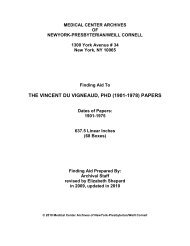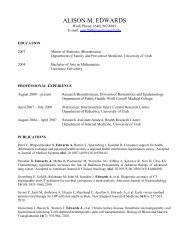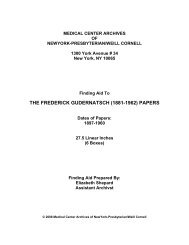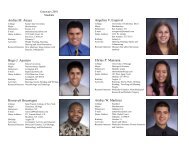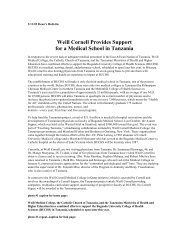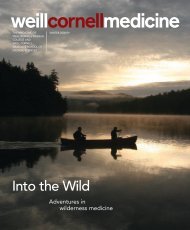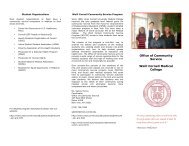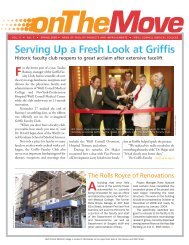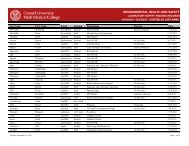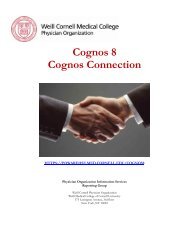Weill Cornell Community Service Program Report 2010 - 2011
Weill Cornell Community Service Program Report 2010 - 2011
Weill Cornell Community Service Program Report 2010 - 2011
You also want an ePaper? Increase the reach of your titles
YUMPU automatically turns print PDFs into web optimized ePapers that Google loves.
“We need to reclaim what we have for too long ignored and neglected: the opportunity for<br />
active and meaningful engagement in our own communities...” –Bill Shore<br />
INTRODUCTION<br />
Since its inception in 1989, the <strong>Weill</strong> <strong>Cornell</strong> <strong>Community</strong> <strong>Service</strong> <strong>Program</strong> (WCCSP) has<br />
been a resource for many of the medical students to become active and stay involved in<br />
servicing their community. The hard work and commitment of our medical students does not<br />
end at graduation. Many of the newly appointed MDs continue to donate their time and<br />
services to the greater community of New York City and beyond. It is very common for<br />
alumni to continue contributing to our service programs in many ways. This type of<br />
involvement is a longstanding tradition here at the <strong>Weill</strong> <strong>Cornell</strong> Medical College (WCMC).<br />
The WCCSP initiatives continue to expand and new projects emerge as students tap into their<br />
creativity to find new and innovative ways to teach and serve New York City. They work in<br />
partnership with their peers, the New York Presbyterian Hospital (NYPH), and local city<br />
agencies to address many of the pressing medical and social concerns of today’s world,<br />
among which are: teen pregnancy, homelessness, substance abuse, HIV/AIDS, illiteracy,<br />
mentorship for our youth, healthcare for uninsured adults, and the pervasive lack of basic<br />
health information.<br />
Students also learn and grow from their volunteer experiences. When exposed to the needs of<br />
their community, they are more likely to become compassionate and aware physicians<br />
sensitized to the special needs of the underserved. They increase their ability to communicate<br />
with others, witness the real-life effects of disease, integrate application with their theoretical<br />
studies, and gain a greater appreciation of how cross-cultural differences impact their<br />
delivery of service. They gain much by generously giving of themselves.<br />
The WCCSP facilitates the operation of volunteer projects by channeling the talents, energy,<br />
and creativity of the medical student community into existing agency programs and <strong>Weill</strong><br />
9



